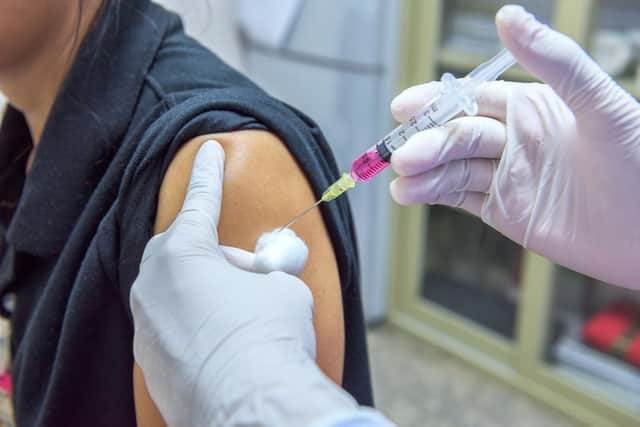Can you have a flu jab if you have a cold? When to get the free flu vaccine - and who is eligible
Thousands of people are being urged to get the flu vaccination this winter due to fears of a co-infection with coronavirus.
Health officials have warned that the viruses could be circulating at the same time, which could see people become very ill should they be infected by both together.
Advertisement
Hide AdAdvertisement
Hide AdCold and flu bugs become much more common in winter, so the flu vaccination programme has been expanded across the UK this year to allow more people to be eligible.


But can you have a flu jab if you already have cold symptoms? Here’s everything you need to know.
What are the symptoms of flu?
Flu symptoms typically come on very quickly and are similar to that of a cold. However, if you have the flu, these symptoms tend to be more severe.
According to the NHS, common symptoms include:
- A sudden fever – a temperature of 38C or above
- An aching body
- Feeling tired or exhausted
- A dry cough
- A sore throat
- A headache
- Difficulty sleeping
- Loss of appetite
- Diarrhoea or tummy pain
- Feeling sick and being sick
The symptoms are similar for children, but they can also get pain in their ear and appear less active.
If I have cold symptoms, can I have the flu jab?
The NHS advises that if you are ill with a high temperature or fever, you should wait until you are better before getting the flu vaccine.
However, cold symptoms, such as a runny nose, should not prevent you from receiving the jab.
Who is eligible for the flu vaccine?
In Scotland, the following people are eligible for the flu vaccine from October:
- All primary school children
- Children aged 2 to 5 (children must be aged 2 years or above on 1 September 2020 and not yet in school)
- Anyone aged 65 and over (by 31 March 2021)
- Anyone with an eligible health condition
- Pregnant women
- Healthcare workers
- Unpaid and young carers
Advertisement
Hide AdAdvertisement
Hide Ad- Those living in the same home as people previously shielding from coronavirus
- Social care workers who provide direct personal care
From December, those aged 55 to 64 (by 31 March 2021) who would not usually be eligible are to be offered the vaccine.
If you are aged 16 or over and not eligible for the free vaccination, you can get the vaccine in many community pharmacies for a fee.
How effective is the vaccine?
The flu vaccine helps to protect against the main types of flu viruses, although there is still a possibility that you might catch the virus. However, if you do get the flu after the vaccination, it is likely to be milder and not last as long.
Receiving the flu vaccine will also stop you from spreading the virus to other people who may be at higher risk of serious problems if they do catch it.
It can take between 10 and 14 days for the vaccine to work.
